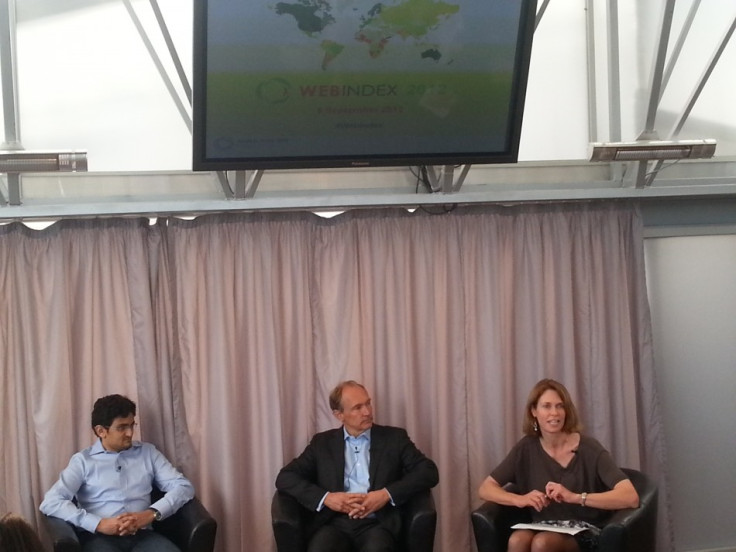UK Ranks Third in Berners-Lee's First Ever Web Index Survey
The founder of the web, Sir Tim Berners Lee has launched the first annual Web Index survey which measures 61 countries and how they have been impacted by the web.

The survey, which was carried out by the World Wide Web Foundation, takes into account aspects such as web readiness, web use and the impact of the web to rank 61 countries across six continents.
Sweden emerged as the best country in the world at "putting the web to work", beating the US and UK to top spot. While the UK ranked number one for web content in Europe, it was only ranked as sixth for web usage, highlighting that the ranking was an average score.
Globally, the survey said that the World Wide Web was a "largely untapped resource in much of the world" with just one in three using it globally, and as few as one in six in Africa.
Among the bottom ten countries on the Web Index 2012 include African countires such as Cameroon, Mali, Namibia, Ethiopia and Zimbabwe while Yemen finished bottom of the list.
When asked if he was surprised by any of the findings of the survey, Berners-Lee said that the position of certain countries, like Italy (23) and Namibia (56) surprised him, as he felt they would be higher based on their relative wealth.
He said that if you mapped the Web Index to the counties' GDPs, then you find out which countries have out over-performed and which have under-performed.
According to that list, Qatar is by far and away the biggest under performer, ranking 21st on the list despite having huge wealth.
Impact of the internet
The reason the survey was conducted in the first place, according to Berners-Lee - speaking at the launch in London this morning - was because the Foundation realised it had no way of measuring the "impact" the web was having on countries around the globe.
The survey reveals that high broadband prices and government censorship are major stumbling blocks to the spread of the web around the globe.
At the launch, Hania Farhan, one of the lead researchers from the World Wide Web Foundation, explained that despite poor censorship records, countries like China, Russia and Kazakhstan still ranked relatively highly.
Farhan said this was down to the way the index was measured. The ranking is based on the average score across seven components: communication infrastructure, institutional infrastructure, web content, web use, political impact, economic impact and social impact.
While China may score poorly on censorship and political impact - as there is no online political activism - it scores really highly on infrastructure and web use.
"The web is a global conversation. Growing suppression of free speech, both online and offline is possibly the single biggest challenge to the future of the web," warned Berners-Lee.
Censorship
Also present at the launch this morning was Wael Ghonin, an internet activist who became famous in 2011 when he was secretly incarcerated by the Mubarak regime in Egypt. While detained, he was interrogated regarding his work as the administrator of the Facebook page: "We are all Khaled Saeed", which helped spark the pro-democracy revolution.
Ghonin said: "The internet is decentralising the world" and this is becoming more and more apparent. He added: "Everyone is in control [of the internet], because no one is in control, that is why I love it, and it is going to continue."
In reference to the Egypt government cutting off access to Facebook during the Arab Spring uprising in the country, Ghonin said: "The more you censor stuff, the more people will want to access it."
Here are the top and bottom ten countries in the Web Index 2012:
Web Index 2012: Top Ten
- Sweden
- US
- UK
- Canada
- Finland
- Switzerland
- New Zealand
- Australia
- Norway
- Ireland
Web Index 2012: Bottom Ten
- Nepal
- Cameroon
- Mali
- Bangalesh
- Namibia
- Ethiopia
- Benin
- Burkina Faso
- Zimbabwe
- Yemen
© Copyright IBTimes 2025. All rights reserved.






















